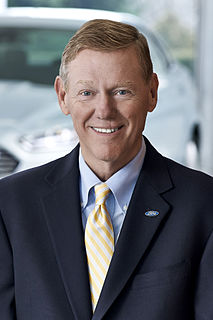A Quote by Debbie Millman
Many brands have lost their way in the process of evolving from a small company to a much bigger corporation.
Related Quotes
There was great political uncertainty in South Asia at the time of the Buddha. The older small tribal societies were cracking up and gave way to bigger states. There was much more trade and travel going on than before. To people in the cities the experience of living in a small place where you knew everyone and governed your affairs by consensual democracy had been lost.
Evolving our culture to operate and think differently is no small task. We are challenging our employees to be the best of both small and big companies - they should operate with the soul and spirit of a startup, while leveraging the scale, resources and capabilities of Campbell - with the goal of ultimately becoming the biggest small company.
There's a great debate going on, you know, on whether we're moving toward a system of giant oligopolies or a system of multiples of small businesses. Which is it? I think it's both. In every sector of the economy, we have giant brands that are trustworthy guides to what's good, and then a vast number of small groups, many of them project-based, sometimes folding and re-creating, that are offering products and services through those giant global brands.
See, the ‘small stuff’ is what makes up the larger picture of our lives. Many people are like you, young man. But their perspective is distorted. They ignore ‘small stuff,’ claiming to have an eye on the bigger picture, never understanding that the bigger picture is composed of nothing more than-are you ready?- ‘small stuff’.
As I've progressed in my career, I've come to appreciate - and really value - the other attributes that define a company's success beyond the P&L: great leadership, long-term financial strength, ethical business practices, evolving business strategies, sound governance, powerful brands, values-based decision-making.






































